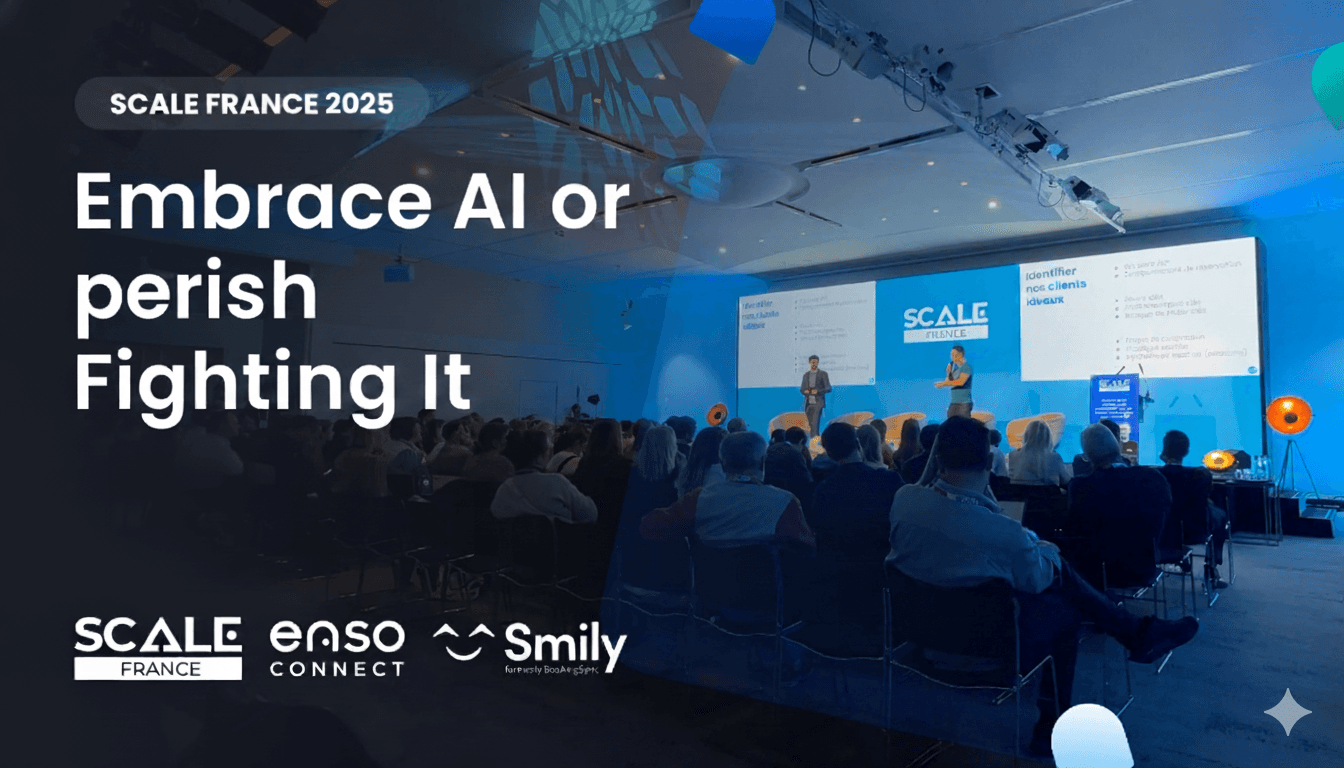Tech Fragmentation in Vacation Rentals: VRMA Recap
In this VRMA session, vacation rental managers will begin to understand the technology landscape and identify the specific issue they may have in their own business, and be able to create a framework for addressing and navigating the technology fragmentation in a practical way today to improve business operation.
October 30, 2023

Francois Gouelo
CEO & Co-Founder, Enso Connect
The short-term rental industry is booming with numerous tech tools. However, integration issues, overlapping solutions, and varying operator needs often complicate rather than simplify. In this video, we'll discuss the current state of hospitality tech, its challenges, and its effects on guest experience and profitability. We'll also suggest ways to navigate this fragmented landscape for a streamlined business.
Learning Outcomes for Vacation Rental Operators
Understand the technology landscape and identify the specific issue they may have in their own business
Create a framework for addressing and navigating the technology fragmentation in a practical way today to improve business operation
Review opportunities to optimize revenue through smart tech (dynamic pricing, timed upsells, gap night, etc.)
Demystify AI and its application in the short term rental and hospitality industries
Balance Guest Experience with automations and streamline operations to scale/grow
Speakers
JOHN AN, CEO, TechTape – Moderator
John’s company TechTape aims to streamline operations for vacation rental businesses by enhancing existing systems and integrating cost-effective, user-friendly solutions. John is also a short-term rental operator, and understands first-hand the complexities of disjointed hospitality tech. He’s also recognized as an expert in revenue management.
PIERRE-CAMILLE HAMANA, CEO, Hospitable.com
With over 80,000 connected listings on the platform, Hospitable never wanted to become a PMS. Automation is what the company is known for. The best service they offer is guest experience products that automate all communication with guests and facilitate direct bookings. The company is mostly focused on property owners.
FRANCOIS GOUELO, CEO & CoFounder, Enso Connect
Francois offers a distinctive perspective on addressing fragmentation in hospitality technology. He champions the “connect VS rip and replace” strategy, empowering operators to select tools that align with their unique business requirements. These tools can then be effortlessly integrated into a custom tech stack, designed specifically for individual hospitality businesses. This vision is the foundation of Enso Connect.
LUCA ZAMBELLO, CEO, Jurny
Luca has a track record of expanding a short-term rental management business to 300 units across five cities. However, at some point technology became a challenge. He spent considerable time integrating various solutions to scale operations. This led him to create his own product, differing from industry norms – Jurny. Today, he is eager to chat with the STR community about tech fragmentation and potential solutions.
Speakers
Get Invited to STR Events
Learn practical strategies to scale your short-term rental business, boost revenue, streamline operations, and unlock the full power of AI.
Our events bring together leading STR operators, tech partners, and hospitality experts to share real playbooks you can use immediately in your business.








